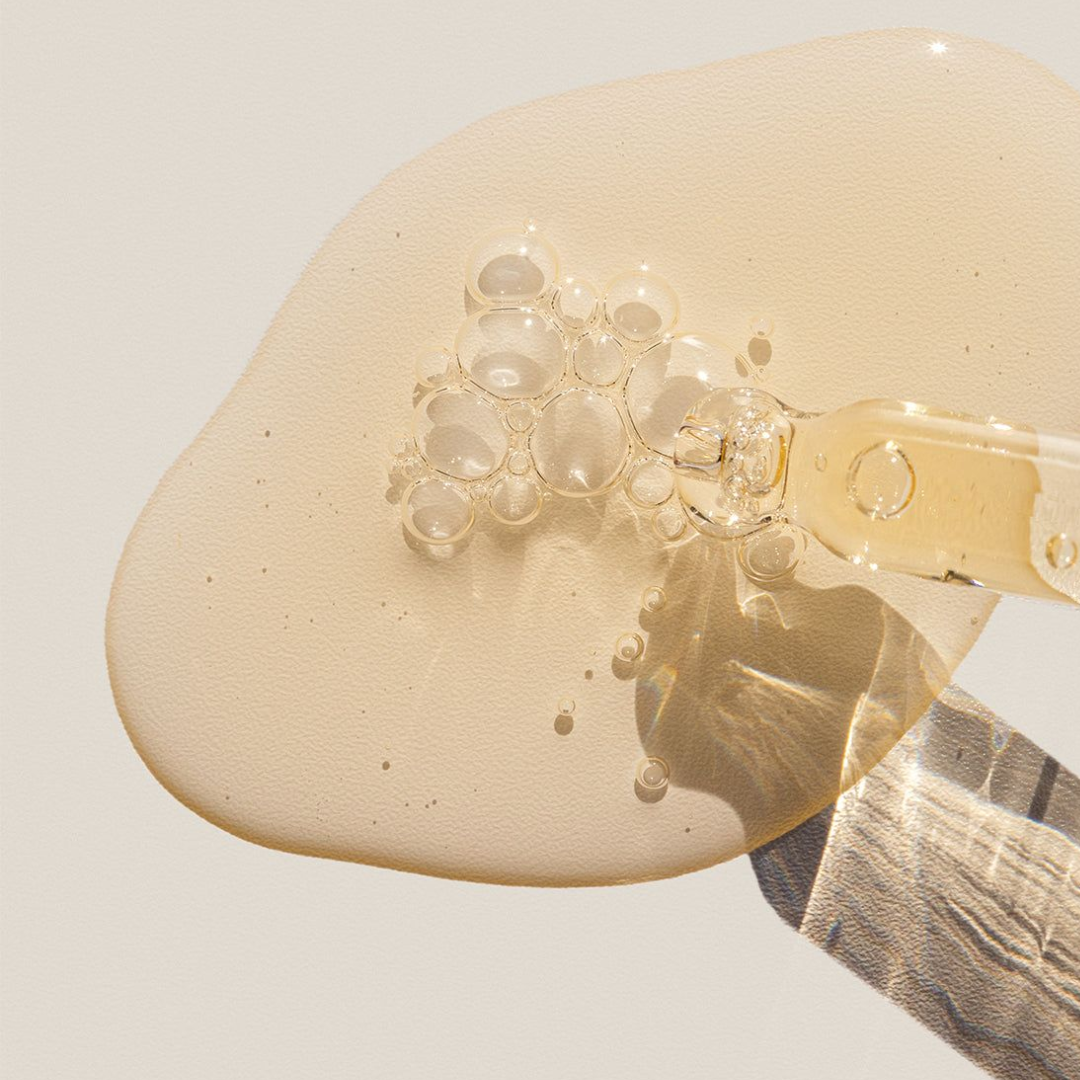
Is vitamin C sensitive to sunlight?
Share
Ascorbic acid, better known as vitamin C, is one of the most popular cosmetic active ingredients for illuminating the complexion, stimulating collagen production and protecting the skin against external aggression. But one question often comes up: is vitamin C sensitive to sunlight?
This is not an insignificant question, as the stability and efficacy of this ingredient are highly dependent on its environment and the way it is used.
In this article, we'll explain the nature of vitamin C, analyze its sensitivity to light, detail best practices for its use, and answer a few misconceptions.
1. Understanding vitamin C in cosmetics
Vitamin C is a powerful antioxidant naturally present in the skin. It acts by neutralizing free radicals, responsible for premature skin aging and loss of radiance.
Its main benefits include :
-
Stimulates collagen synthesis for firmer skin
-
Reduction of pigmentation spots
-
Improved radiance and even skin tone
-
Protection against oxidative stress caused by pollution and UV rays
In cosmetics, we mainly use pure L-ascorbic acid or its stabilized derivatives (ascorbyl glucoside, sodium ascorbyl phosphate, etc.).
2. Vitamin C's sensitivity to light and air
Pure vitamin C is unstable: it oxidizes easily on contact with air, heat and light. This oxidation leads to a loss of efficacy, and can sometimes give the product a yellowish or brownish color.
This means that :
-
A poorly sealed bottle or one exposed to direct light will lose its active concentration.
-
UV rays can accelerate this oxidation process, especially if the formulation is unprotected.
3. Vitamin C and sun exposure: should you avoid?
Contrary to popular belief, vitamin C is not photo-sensitizing. This means it does not make the skin more sensitive to the sun, unlike certain active ingredients such as AHAs, retinol or certain essential oils.
In fact, its antioxidant power even helps protect the skin from UV damage, in conjunction with sunscreen. Dermatologists often recommend the combination of vitamin C + SPF in the morning for an optimal anti-free radical shield.
4. The real problem: sun oxidation
The problem is not the reaction of vitamin C on the skin, but its stability in the bottle. If a formulation is poorly protected or exposed to light, its concentration can drop rapidly.
To limit this risk:
-
Choose opaque or amber glass bottles
-
Opt for stable formulas (acid pH, presence of vitamin E or ferulic acid)
-
Close bottle tightly after use
-
Keep away from heat.
5. Best practices for using vitamin C in the sun
a) Morning application
Applying it in the morning maximizes its antioxidant function and protective effect against free radicals. It works in synergy with SPF.
b) Combine with sunscreen
An SPF 30 or higher is essential, not because vitamin C makes the skin photosensitive, but to protect the skin from UV rays and preserve the results of the treatment.
c) Choosing the right formulation
For daily use, use :
-
Serums with L-ascorbic acid between 10 and 20% .
-
Stabilized derivatives for sensitive or beginner skin
-
Formulas combined with ferulic acid or vitamin E for enhanced stability
6. Preconceived ideas about vitamin C and the sun
Myth #1: "Vitamin C shouldn't be used during the day."
❌ False - In fact, it's most useful against oxidative stress during the day.
Myth #2: "It stains the skin in the sun."
❌ False - It's its oxidation in the bottle that can yellow the product, not the skin.
Myth no. 3: "You should only save it for winter."
❌ False - It's beneficial all year round, especially in summer to protect against free radicals.
7. Ideal routine with vitamin C
Morning:
-
Gentle cleaning
-
Vitamin C serum
-
Moisturizing cream
-
SPF 30+ sunscreen
Evening:
-
Cleaning
-
Moisturizing or anti-aging serum (niacinamide, peptides, retinol if tolerated by the skin)
-
Nourishing cream
8. In a nutshell
-
Vitamin C is sensitive to light and air, but is not photosensitizing.
-
It can be applied in the morning, in combination with an SPF, to reinforce skin protection.
-
The greatest risk in the sun is oxidation of the product in the bottle, not a reaction on the skin.
-
Proper formulation and storage guarantee its effectiveness.
To put it plainly: vitamin C is a daily ally against the effects of the sun, provided you choose a well-formulated product and use it correctly.
